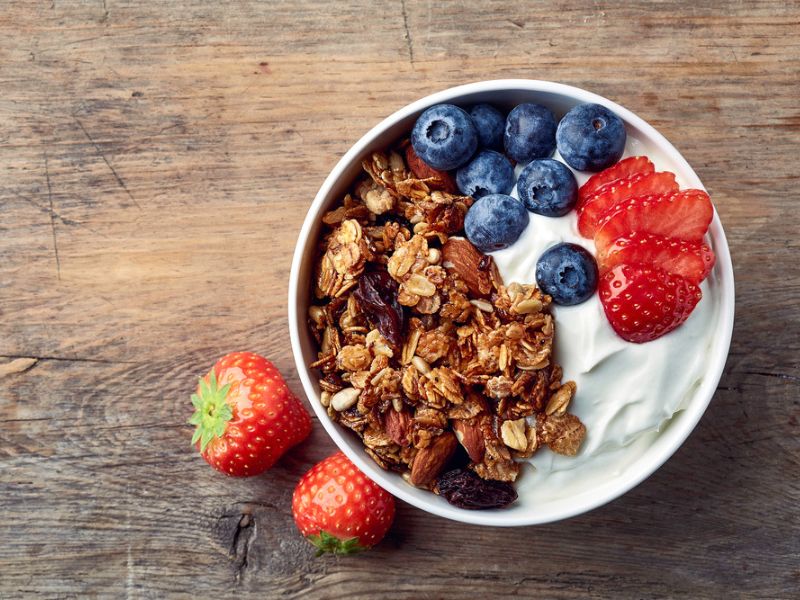Gaining weight may be necessary for various reasons, such as genetics, medical conditions like fat malabsorption, cancer treatment, pregnancy, and athletic performance improvement. Contrary to popular belief, foods rich in saturated fats are not the only options to gain weight. Healthy alternatives, like snacks rich in protein and healthy fats, can also aid weight gain. Snacking between meals can be a practical starting point.

Image Credit: Pexels/Andres Ayrton & Pexels/David Disponett
Focus on eating nutrient-rich, high-calorie foods as you increase your calorie intake. Registered Dietitian Stefani Sassos suggests choosing healthy options instead of foods high in added sugar and sodium. Sassos adds that fats have more calories per gram than protein or carbohydrates, so you don’t have to eat as much to get the same calories.
You can reach your weight goals by eating these high-calorie snacks. Similar to weight loss, weight gain should occur gradually. Consult your healthcare provider before making any dietary changes, especially if you have specific medical needs for gaining weight.
Nuts, Seeds, And Nut/Seed Butter
Nuts and seeds are a rich source of healthy monounsaturated fats and omega-3 fatty acids, fiber, protein, antioxidants, vitamins, and minerals. Studies indicate that consuming more nuts and seeds may lower the risk of cardiovascular disease. While all nuts and seeds are calorie-dense, macadamia nuts and pecans pack the highest number of calories, with about 200 calories per ounce.
Full-Fat Greek Yogurt
Full-fat Greek-style strained yogurt is a nutritious treat with high amounts of protein, probiotics, calcium, and Vitamin B12. Compared to low-fat or skim milk yogurt, full-fat Greek yogurt has more calories (220 vs. 90) and fat (11 vs. 0 grams), making it a calorie-dense option. It contains some saturated fat, so keep an eye on that intake and limit it to 3 grams per meal. Exceeding the recommended daily limit of saturated fat (13 grams on a 2,000-calorie diet) can raise LDL cholesterol and increase the risk of heart disease and stroke.

Image Credit: Shutterstock/baibaz
Protein Supplements
The market is full of excellent protein powders, many of which are designed for weight gain because they are a convenient and quick way to add calories. These powders are high in protein and carbohydrates, making them popular for boosting caloric intake, especially among athletes. Protein powders are categorized as dietary supplements and fall under FDA oversight, although the industry as a whole is inadequately regulated.